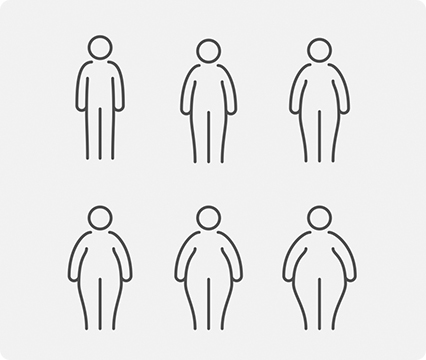A qualitative model of weight cycling
When someone tries to reduce weight after internalizing ideas about their body, comparing themselves favorably to others, and feeling stigmatized, they may end up weight cycling, which is the repetitive process of gaining and losing weight throughout life. The relationship between social pressures, weight cycling, and perceived and internalized stigma has not been systematically investigated despite the possible adverse effects on one’s physical and mental health. Thus, this study by Romo et al. (2024) aimed to explore how people handle weight cycling through in-depth interviews with 36 adults. A qualitative weight cycling model was developed using interview input based on a theory-neutral inductive analysis (which may be explained as deriving findings from collected raw data without accounting for genetic variables). The phases of the model were going into the cycle, progressing through the cycle, and going against the cycle. The authors observed that social pressures related to weight stigma prompted participants to partake in the weight cycle. Furthermore, interviewees internalized the stigma associated with their weight and adopted disordered weight-management practices during the cycle. A few individuals disrupted the pattern by increasing their self-awareness and reducing their harmful eating habits. Nevertheless, many found it extremely challenging, if not impossible, to completely give up weight cycling and the constraints of earlier weight control practices and thought processes. The authors conclude that their analysis highlights the gravity of weight cycling and offers individual and group-wide prevention strategies. Considering weight cycling as disordered eating may also be helpful if society wants to avoid its unhealthy emphasis on quick weight loss. [NPID: Weight gain, weight loss, social stigma, weight cycling, societal pressure, neutral theory, qualitative model]
Year: 2024
 Navigation
Navigation






